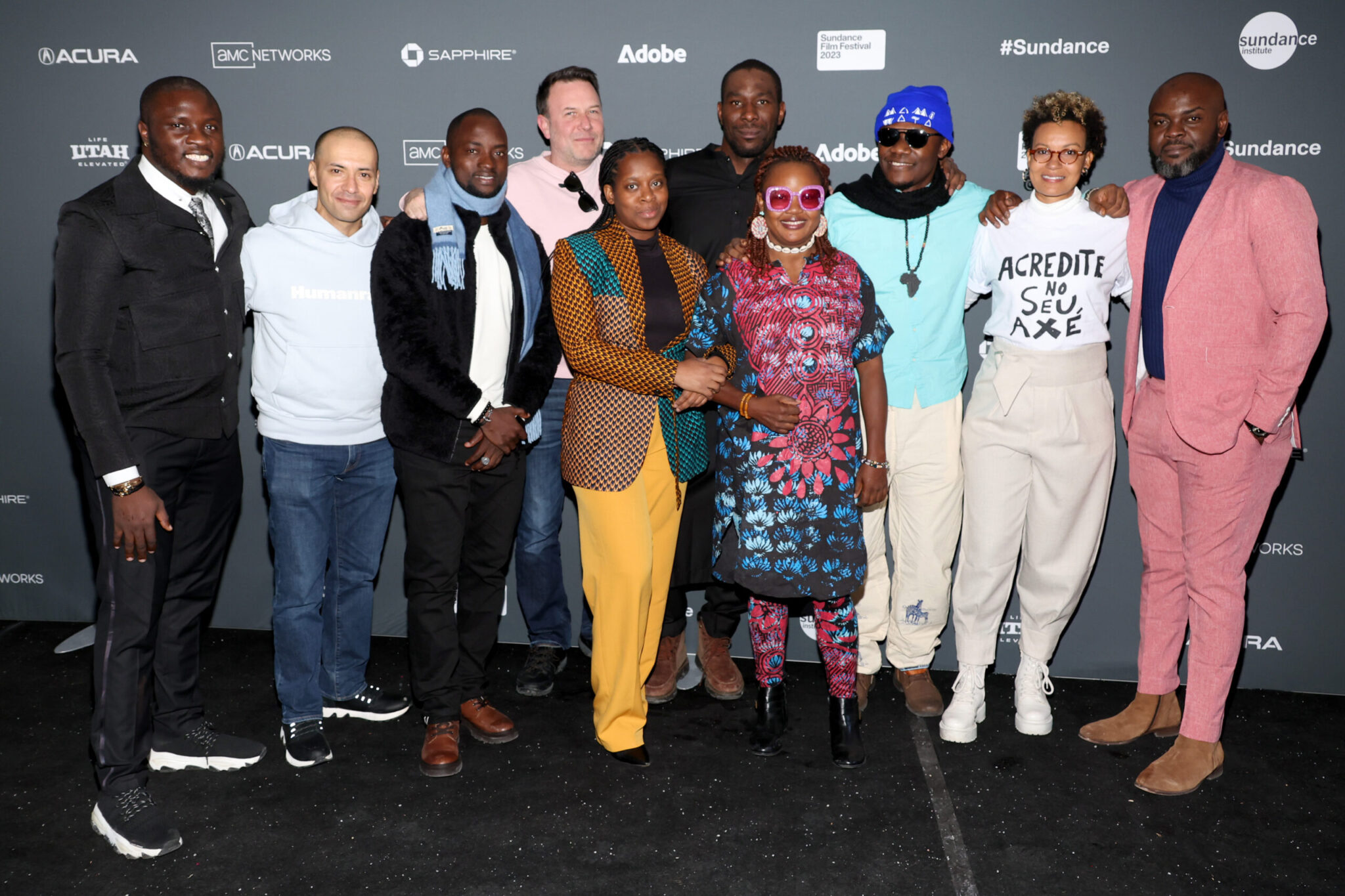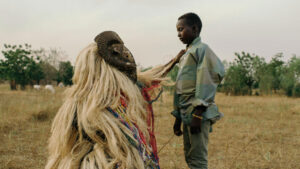PARK CITY, UTAH – JANUARY 23: Cast and crew of “Mami Wata” attend the 2023 Sundance Film Festival “Mami Wata” premiere at the Library Center Theatre on January 23, 2023 in Park City, Utah. (Photo by Monica Schipper/Getty Images)
By Lucy Spicer
Old and new. Traditional and modern. Black and white.
Writer-director C.J. “Fiery” Obasi’s modern fable is a tale of contrasts, some of them extreme. But the moral of the story isn’t about one thing defeating another.
“This is a movie about balance. This is a movie about harmony,” says Obasi at the Q&A following the premiere of Mami Wata at the Library Center Theatre on January 23.
Obasi’s stunning film takes place in Iyi, an oceanside village whose people have long believed in Mami Wata, the water goddess. Iyi’s leader, Mama Efe (Rita Edochie), acts as conduit for Mami Wata’s power, but some of the villagers grow skeptical of her abilities — and the existence of the deity herself — when a young boy dies of a virus. Mama Efe resists outside offers of modernization — like western medicine — even as unrest grows in the village, to the dismay of her daughters, Zinwe (Uzoamaka Aniunoh) and Prisca (Evelyne Ily Juhen). Amid all of this uncertainty, a mysterious outsider named Jasper (Emeke Amakeze) washes ashore, claiming to be a deserter whose wife was killed by rebels.
Jasper proves to be just the person the disgruntled villagers, led by Jabi (Kelechi Udegbe), need to spark an uprising and usurp Mama Efe’s position of power. And though they promise progress, their immediate priorities are arming themselves and stamping out any signs of the old order. Ultimately, it’s up to Prisca and Zinwe to restore peace and the villagers’ faith in the mermaid goddess.
Mami Wata may be a long-venerated goddess in West African culture, but her namesake film sets out to create something new. “What you’re used to seeing as far as African cinema is a very specific perspective that is more or less sympathetic towards African people, and we didn’t want to do that,” explains Obasi during the post-premiere discussion. “We wanted something more empathetic, something more human to kind of subvert the codes of what people tend to think about the expectation about African cinema.”
“And this was also a work that we had to do on ourselves,” he adds. “Because we realized early on that we ourselves, we are also programmed to see ourselves that way.”
One of the most striking elements of Mami Wata is its cinematography. Shot in black and white and often at night, the film makes creative use of lighting — especially how it plays off of dark skin. This high-contrast monochrome creates suspense in some scenes and intimacy in others, both to great effect. But this aesthetic choice was a risky one, according to producer Oge Obasi. “In Nigeria, black and white was also a concern, because why black and white? Why not show off the colors, you know?” she says.
Luckily, the film’s writer-director was willing to take that risk. “C.J. is a fantastic filmmaker,” gushes Udegbe during the Q&A. “He’s somebody that you, as an actor, would always want to work with, because his ideas are not just the normal films that we make. Because in Africa, we have constraints,” he explains. “So most filmmakers are always careful. They just try to make films that they can sell and make their money back. But working with C.J., he always wants to explore, he wants to push you as an actor, he wants to try crazy things. So it’s always a pleasure working with C.J.”










